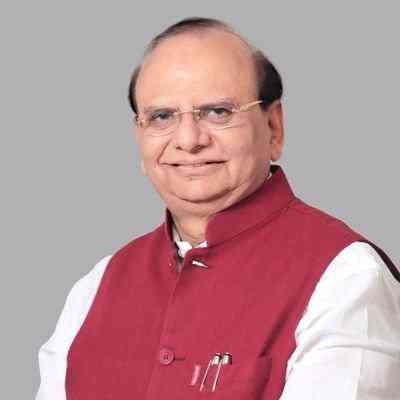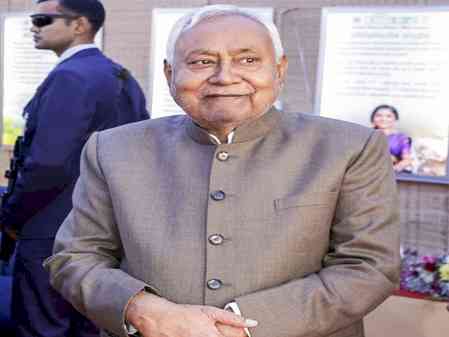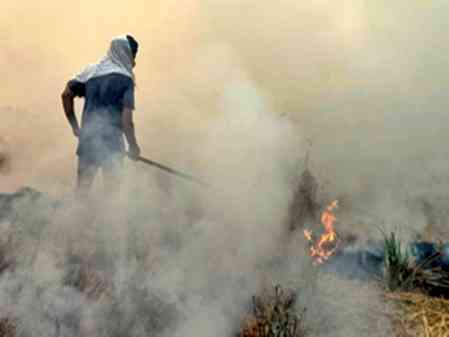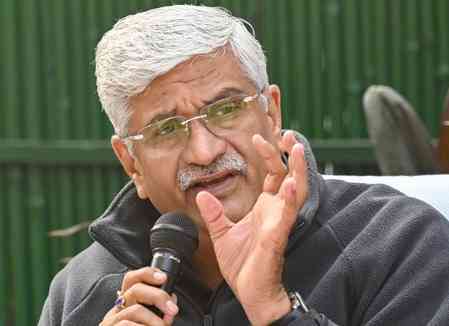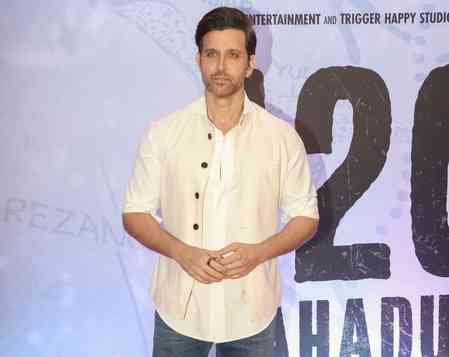The Third Eye: National security is a multi-dimensional challenge
The ever-enlarging circle of national security concerns is raising some interesting questions about a possible 'security overreach', the need for clarity about definitive threats as against interpretations of presumptive dangers and a better-defined approach to long-term and short-run problems.
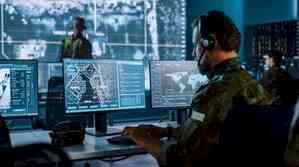
D.C. Pathak
New Delhi: The ever-enlarging circle of national security concerns is raising some interesting questions about a possible 'security overreach', the need for clarity about definitive threats as against interpretations of presumptive dangers and a better-defined approach to long-term and short-run problems.
Nothing should happen to dilute the ‘core’ threats to national security and a quick integral response to the same should be constantly evolved. Assessment of such a threat depends on a combination of available information or ‘Intelligence’ and a competent human assessment that uses data analytics in a major way.
Moreover, human ‘sources’ and our own technical intelligence are now supplemented by what we get from Intelligence-sharing arrangements with our strategic partners in the international community - this gives new-found importance to the ongoing determination of our ‘friends and adversaries’ in the backdrop of changing geopolitics.
Military threats - imminent and long-range - and the danger of ‘covert’ attacks like cross-border terrorism, are the basic components of any national security evaluation. To these are added the global concerns that cast their shadow on national security perspectives - like environment and climate change, narcotics trade and human trafficking.
A newly recognised dimension of national security - traceable to the doctrine famously enunciated by US Secretary of State Warren Christopher in 1993 to the effect that ‘national security was inseparable from economic security’- has appeared in the post-Cold War era which was marked by the advent of ‘proxy wars’ as a replacement of the open military attack. Covert offensives including cyber attacks designed to damage the economy of the opponent, are now the order of the day and national security plans should effectively take care of these.
Above all, an evaluation of who the strategic friends and adversaries are at a given point of time becomes a basic prerequisite for framing the national security strategy.
National security obviously revolves around the safeguarding of the nation against external and internal threats, against an ‘open’ military attack as well as ‘covert’ offensives of the adversary and in fact against any moves of the opponents to directly or indirectly weaken our internal stability and unity.
The ‘open’ attack is repulsed by the nation’s defence forces while the ‘unseen’ danger is to be neutralised on the strength of prior information called Intelligence gathered by the nation’s security set up including the Intelligence agencies. Defence and Security both denote protection but they are not synonyms.
There is, of course, a hidden part of the open attack when the enemy would be secretly planning the offensive and the country would need ‘Military Intelligence’ for that collected through both human and technical means - the latter covering signals, imagery and communication interceptions.
National security at its hardcore demands a total watch out against external and internal threats and a nation has to do whatever it takes to strengthen its defence forces as well as the security and Intelligence set-up to deal with them.
Strategic partnerships are meant to bolster the country’s defence. In the area of security which is protection against covert offensives like terror attacks, Intelligence was the chief weapon for countering them.
Security fails for three reasons - failure of advance ‘information’, failure of ‘communication’ of Intelligence to the action-taking authorities and failure of these authorities to take coordinated ‘action’.
It is rightly said that ‘either Intelligence succeeds or the enemy does’. As the sources of threat to internal security spread to the ground level, the importance of public awareness and the outreach of Central agencies to the local police and administrative authorities increases manifold. The Department of Homeland Security created in the US after 9/11 established Fusion Centres that provided for the flow of security-related information directly from the public too.
Over the years many ‘unconventional’ dimensions of national security have come to the fore and compelled the policymakers to include them along with the ‘hardcore’ threats in the framing of an integral assessment of what would sustain national security in a comprehensive long-term view. One is the acceptance of the thesis - as already mentioned - that the economic strength of the country contributed to its national security.
Rich countries are better placed in terms of being strong on security because they could spend more on it. ‘Security does not come cheap’ and this was reflected in the reality that the two Superpowers during the Cold War were also on top in terms of their economic strength.
The collapse of the Soviet Union in 1991 that ended the Cold War was primarily because of the blow to the economy that it suffered on account of the war in Afghanistan.
The demise of International Communism precipitated by that development, saw Mikhail Gorbachev giving up on ‘democratic centrism’ or the one-party rule internally and Deng Xiaoping President of China taking a lesson from the Soviet case to cautiously open the domestic economy of his country to foreign investments.
Two current trends broadly resulting from the doctrine of ‘national security being inseparable from economic security’ are that first, in the era of ‘proxy wars’ ensuing on the termination of the Cold War, covert attacks were directed at damaging the economic lifeline of the target country and secondly, that China under President Xi Jinping had consciously chosen to take to the economic route to becoming a Superpower.
Cyber security issues have assumed prime importance because of the fear of cyber attacks of the enemy aimed at destroying the critical infrastructure, supply chains and sensitive strategic establishments of the target country.
The non-traditional threats to national security are rooted in energy or water deficit, ecological degradation, blunted law enforcement that allowed sectarian, communal and regional conflicts, technological regression, insurgencies including separatist movements, economic disparities leading to internal stirs, transnational crimes like drug trade, adverse geopolitical balance of power and a fragile neighbourhood.
National security is weakened in the long term by any of these factors and in an interconnected world, there are many global commons impinging on national security.
The advent of social media as an instrument of combat is the new threat of our times as it is used for building narratives that would influence public opinion against an existing regime, raising sleeper cells of terrorism and instigating separatism from outside.
Terrorism banks on the commitment and motivation of the converts based on ideology, the assertion of ethnic identity or what is more important in present times, the appeal of faith.
The global threat of terrorism arises largely from the indoctrination of the young and even the educated for carrying out Jehad as a fundamental duty in Islam. The two largest democracies of the world - the US and India - face the threat of ‘radicalisation’ which is fast gaining ground in the Muslim world, particularly in the Middle East and India’s foreign policy is rightly emphasising their partnership for protecting the democratic world order as such.
In the diverse socio-political setting that India faces, it is extremely important to realise that law and order management is now a major determinant of internal security. Since the police is a state subject, it is time the Centre had a hand in the selection of the Chief Secretary and DGP of the state who are All India Services officers and whose performance was already reviewed by the Department of Personnel & Training functioning under the Prime Minister.
Uniformity of the standards of law and order handling was a vital requirement of the federal system of India that gave freedom to the citizens to move to and settle down in any part of the country. Security and law and order management have to be clearly kept above politics.
India has done well in the area of handling external and internal threats to our national security in the times of the present National Security Advisor who had an Intelligence background. Coordination among Intelligence agencies had vastly improved, the exchange of relevant information between these agencies and investigation outfits looking into cases of terrorism, narcotics trade and economic offences at the national level had been arranged and an integral response to any imminent threat to national security had been assured in this period. Foreign policy is supposed to address national security and economic concerns - in that order - and it is a matter of great satisfaction that diplomatic responses to geopolitical developments carried a clear imprint of the security advice.
India’s preference for mutually beneficial bilateral relations now covers multilateral friendships as well and since these were in line with the cause of the good for humanity at large, they enhanced the image of India as the promotor of the voice of peace and sanity in international relations. This should be seen in the backdrop of a not so effective United Nations.
India’s acknowledgement of multipolarity in the world order gives it the required flexibility in responding to global developments in a manner that safeguarded its own national interests and security.
The present regime has demonstrated its political will in handling security challenges on our borders, given attention to making India self-dependent in the sphere of defence and security and demonstrated a certain degree of boldness and uprightness in dealing with major powers of the world.
(The writer is a former Director of the Intelligence Bureau. Views are personal)
--IANS
dcpathak/sha


 IANS
IANS 





